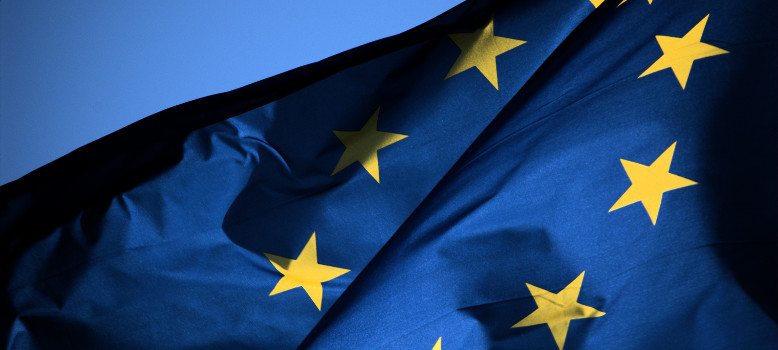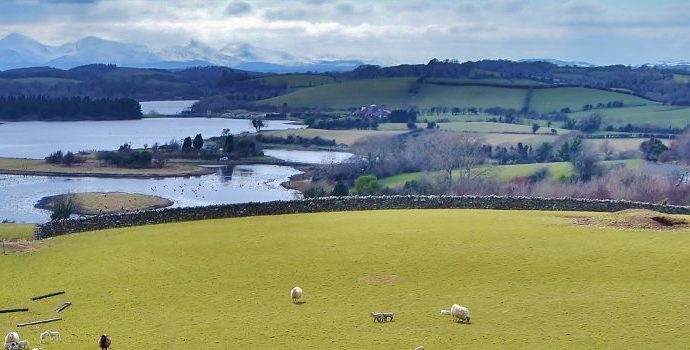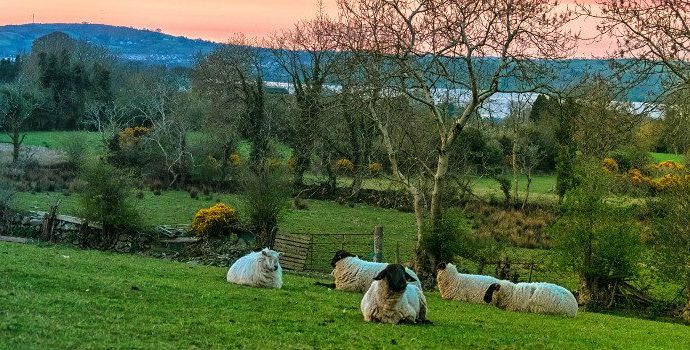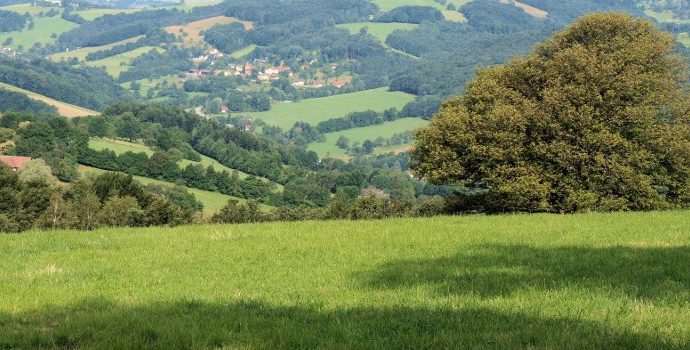
CAP Update Dec 2020 to March 2021
- The Portuguese minister for agriculture Maria Do Ceu Antunes took over the Presidency of the Agriculture Council on Jan 1st 2021
- The European Commission, European Parliament and EU Agricultural Council are currently engaged in CAP Trilogues and an agreement on the CAP is expected by the conclusion of the Portuguese presidency at the end of June 2021.
- On December 18th 2020, the European Commission published its customised recommendations for Ireland in consultation with the Department of Agriculture to assist Member States in developing their individual National Strategic Plans
- Details of the full report are available here.
- Detail of IFA reaction is at https://www.ifa.ie/nsp/
- There are seventeen specific recommendations for Ireland to address issues of agriculture sector resilience, environment and meeting societal demands
- On January 14th the Commission published a list of agriculture practises that eco schemes can support, details here.
- IFA held four regional online meetings on CAP in January to engage with members discuss CAP issues and queries with over 750 members participating.
- Among the most critical issues raised by IFA members were, Convergence, definition of Genuine Farmer, leasing of entitlements, Eco Schemes, Coupled Support, Income support cuts, Young Farmer Measures and the various rural development measures.
- Member states have a deadline of end of December 2021 to prepare and submit their national CAP Strategic Plan. This Plan covers the adoption of Pillar I and Pillar II measures into each member state’s agricultural support programme.
- The Department of Agriculture have completed a SWOT Analysis and Needs Assessment in preparation for Ireland’s next CAP Strategic Plan.
- Pillar 1 budget from 2021 to 2027 inclusive represents a 2.05% reduction compared with 2014 to 2020 (Confirmed by DAFM Jan 2021)
- IFA met with the Commission February 9th to discuss eco schemes and on February 24th IFA met with the Commission to discuss conditionality and GAECs
New Results based Pilot Scheme (REPS)
- The new REPS type scheme which was proposed in the Programme for Government and funded from carbon tax was promised as a separate scheme to any CAP supported measure. IFA continues to insist that this remains the situation and that the carbon tax cannot be used as a replacement for national co-financing funding.
- This is a results-based pilot scheme to aid in the development of future agri environment schemes
- For more details see Rural Development Report
ECO SCHEMES
- The proposal around Eco Schemes is similar to greening in that a fixed % of all entitlements will be taken from a farmer’s payment and farmers may participate in ECO scheme measures in order to draw down the % deducted.
- MEPs have proposed that 30% Pillar 1 should go to the new eco-schemes, which will reward farmers for adopting environmental and climate practices that go beyond basic requirements, the Council of Ministers have proposed that 20% of Pillar 1 go to the new eco-schemes while the Commission have no ring-fencing level proposed.
- Eco schemes could possibly add to convergence as the allocation % is deducted from everyone and it looks like it’ll be a flat payment – impacts greatest on those with high per ha payments.
- Agreement on Eco schemes is proving difficult and this will be revisited in Trilogue negotiations in April / May 2021.
Convergence
- European Parliament want all the income support to reach at least 75% of the average in each member state by 2024 and 100% by 2027,
- The Council of Ministers state that all entitlements reach 75% of the National Average by 2026.
- The Commission state that by 2026 at latest, all payments entitlements to have converged to 75% of national or regional average entitlement.
Final decision to come from Trilogues
Previous Council CAP report to Nov 2020
MFF 2021 – 2027
- On July 22nd, the EU Council agreed a recovery package for Europe due to the Economic turmoil arising from the COVID-19 pandemic and a 7-year Multi Financial Framework (MFF). The total package is worth €1.8trillion.
- The Package includes a revised MFF for the next 7 years of €1,074bn (Constant Prices) or €1,210bn (Current Prices) and a Next Generation EU Recovery and Resilience Fund of €750bn.
- The new proposal involves a slight increase in CAP funding from the original Commission proposal but is still a decrease from the EU CAP Budget 2014-2020 at Constant 2018 prices of around 10%.
- Included in the CAP is €7.5bn from the Next Generation EU (NGEU) Recovery and Resilience Facility (RRF), the amount allocated to Ireland is €189.7m. This funding is added to Pillar 2 funding and must be committed by in 2021 and 2022 (30% in 2021 & 70% in 2022) and payments made by Dec 2025. It will be incorporated in Member States CAP Strategic Plans.
MFF / CAP Outcome
| Constant 2018 prices €bn | 2014-2020 MFF (EU27) | Agreed MFF &CAP 2021- 2027 | % reduction at Constant prices | 2014-2020 MFF (Ireland) | 2021-2027 MFF (Ireland) Current Prices | % Change |
| MFF size, EUR billion | 1,082 | 1,074 | -0.7% | |||
| Agriculture | 382.8 | 343.94 | -10.1% | 10.68 | 10.73 | 0.5% |
| EAGF – Pillar 1 | 286.1 | 258.59 | -9.6% | 8.489 | 8.2575 | -2.7% |
| EAFRD- Pillar 2 inc €7.5bn from NGEU-RD) | 96.7 | 85.35 | -13.1% | 2.189 | 2.454 | 12.1% |
| CAP % Share of MFF | 35.3% | 32% |
Note: Budget figures are presented by the Council in Constant 2018 prices and in Current Prices. Constant prices account for inflation and allow for a direct comparison between the current CAP funding and the proposed CAP funding via the new MFF. The higher Current prices do not take account of inflation.
- Following the conclusion of the talks, the Taoiseach pointed out that there was an increase in the CAP Budget for Ireland from €10.68bn to €10.73bn, in current prices.
- Of the overall MFF EU 27 allocation of €258.9bn for Pillar 1, Direct Payments make up €239.9bn and market related measures are worth €18.678bn.
- The former Minister for Agriculture Darragh Calleary had indicated that the reduced budget would lead to a 3% reduction in BPS from 2021 onwards.
- For pillar 2 co-financing the EU Council of ministers are proposing to set it up to a maximum of 57% national funding in some measures. The EU Parliament and the Commission are proposing slightly lower percentages. The final decision is currently under discussion in Trilogues.
- When the maximum allowed rate of national co-funding allowed for Pillar 2 is set by the Trilogues it is then a national decision on the level of national funding allocated.
- IFA will be seeking a maximum allowed national co-funding rate to be provided in Ireland
- The breakdown of proposed CAP at current prices for Ireland for the next 7 years would be €8.3062bn for Pillar 1 and €2.439bn for Pillar 2.
- On an annualised basis this would lead to an EU allocation of €1,179 m for P1 and pillar 2 breaks down as follows:
- 2021 – €380.6m + €56.1m (NGEU)= €436.7
- 2022 – €311.6m + €133.6m (NGEU) = €445.2m
- 2023 – €311.6m
- 2024 – €311.6m
- 2025 – €311.6m
- 2026 – €311.6m
- 2027 – €311.6m
Note: Included in the CAP is €7.5bn from the Next Generation EU (NGEU) Recovery and Resilience Facility (RRF), the amount allocated to Ireland is €189.7m. It is added to Pillar 2 funding and must be committed by in 2021 and 2022 (30% in 2021 & 70% in 2022)
- With maximum co-financing this could leave a 7-year RDP worth over €5bn compared to €4.1bn in the last period.
- IFA has set a target that Direct Payments (both Pillar 1 and Pillar 2), should increase from the current annual level of €1.8bn to €2bn in the next CAP post 2020.
Capping
- European Parliament position is to progressively reduce annual basic payments above €60k & cap them at €100k. They also kept a provision that labour costs could be offset.
- The Council of Ministers position is MS must cap at €100; May deduct labour and salary costs.
- The Commissions position is MS mmust cap from €60k, degressive to €100k, may deduct salaries.
- Capping is proposed by all three institutions at different levels. Labour costs deducted proposed by all three. Final decision to come from Trilogues.
Other issues
- External convergence accelerated – effectively moving funding from Western EU countries to newer Member States with 50% of the difference up to 90% of BPS being made up. The minimum payment in 2022 in these countries will have to be €200/ha and by 2027 it will have to be €215/ha. This should not impact on Ireland as our average payment is €260/ha which is more or less equal to the EU average.
- Crisis reserve of approximately €400m will be set up which will carry from one year to another if it’s not spent
CAP Transition
- EU Transitional proposals were passed by the European Parliament and the Council of Ministers.
- The transitional rules are vital to allow the continuation of various schemes such as BPS, ANC, GLAS, TAMS, BDGP, and Sheep Welfare into 2021 or 2022.
- The Basic Payment and Areas of Natural Constraint (ANC) payments are to be rolled over as part of CAP transition for 2021 and 2022 under the current rules and that payment dates for 2021 will be in line with that of 2020.
- Internal convergence will not continue for the transition period
| Tadhg Buckley Director of Policy/Chief Economist | Liam MacHale Director of European Affairs | Denis Griffin Senior Policy Executive | Donal Sheehan Policy Executive |




